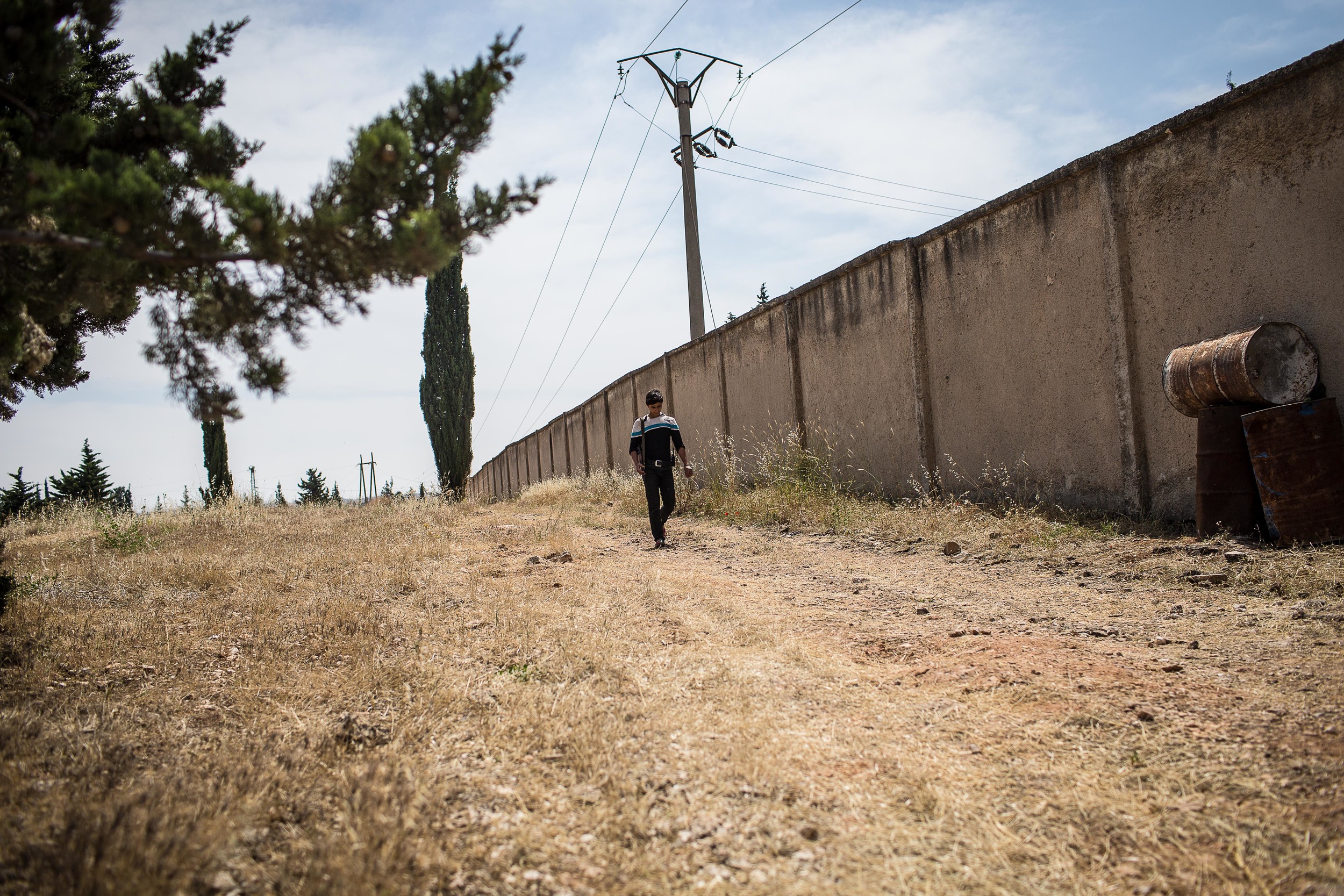Placed in the southeast corner of Aleppo, Aleppo International Airport has been of significant strategic importance in the fight for control of the city. It provides a reliable conduit through which regime forces can resupply with munitions and food, and is a critical launching point for airborne attacks throughout the area.
"With the airport comes the city," said Abu Abdo optimistically. Abdo is the commander of Shuhada Tawhid, part of the large Liwa Tawhid Brigade, and one of the many battalions that helped push back the regime's Brigade 80 in January. Since then Shuhada Tawhid, along with others, have taken up positions around much of the airport's perimeter. Yet the airport itself remains firmly in the hands of the regime, and rebel battalions have neither a cohesive strategy nor enough resources to enact a successful one. They are therefore tasked with holding their line while weapons and money are gathered and a plan developed.
For Shuhada Tawhid, this makes for a daily game of cat and mouse in which they are at once in an all-out war, yet unable to move decisively. The goal instead narrowed to maintaining the status quo and staying alive long enough to try and make a conclusive attack if the time comes.
"Advancing on mission can be easier [than guarding] because there is always movement," says Abu Abdo. "Here we have the same dangers but also time of nothing...time to think."
Their shelter - an abandoned construction office - sits less than 100 meters from the wall, regime forces a mere 200 meters beyond that. Small arms, mortars, and tank fire rain freely throughout the day. At night, tracers streak the dark sky as regime MiGs scream overhead on bombing runs. The prospect of dying is constant, yet never talked about. In this culture of bravado and sacred martyrdom, all say they are willing to die. A few say they look forward to it, the prospect of becoming a shaheed - martyr - so coveted.
Over the course of the battalion's 14 months fighting, more than 50 of its fighters had been killed, close to one per week. By those numbers, most of the battalion's 13 young men present now will be dead in another three months. Yet their days continue between now and then. When not trying to kill those over the wall, they play tricks on each other, a group of giggly brothers, and talk over cigarettes and endless cups of sugary Ceylon tea.
"We are not violent people," says Abu Abdo, "this is not the life we would have chosen but we have been forced here and we cannot stop. We either win or die."
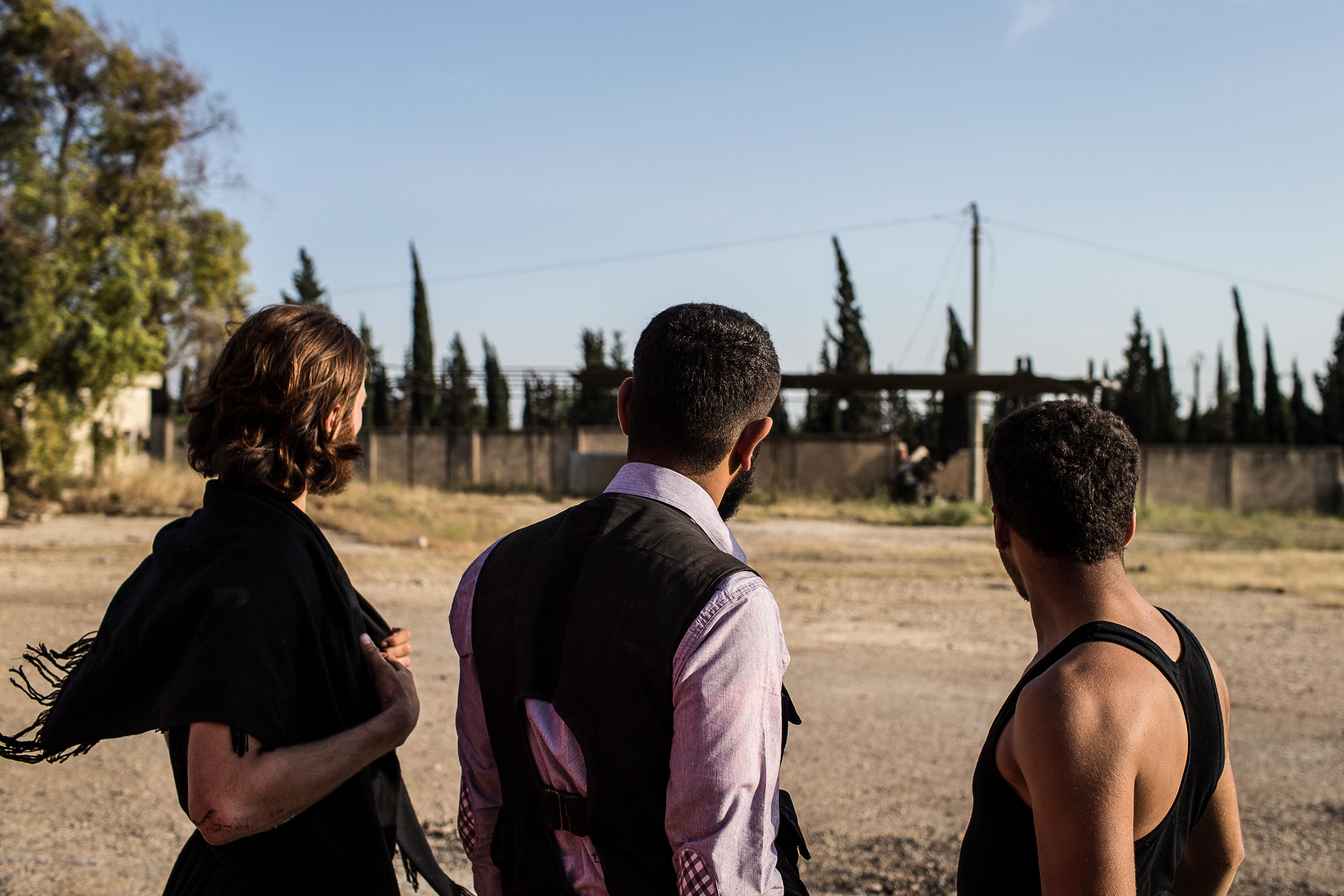








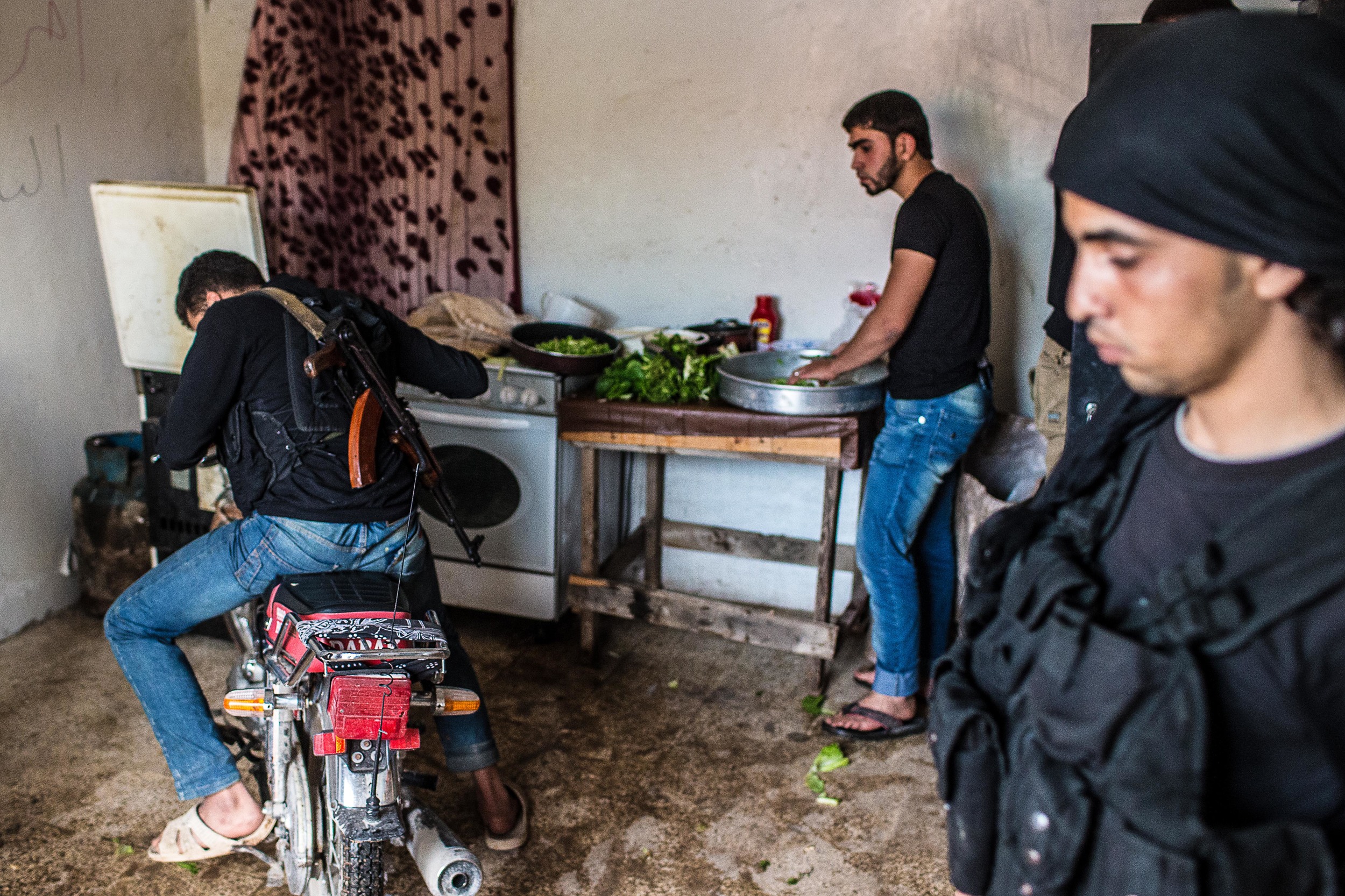





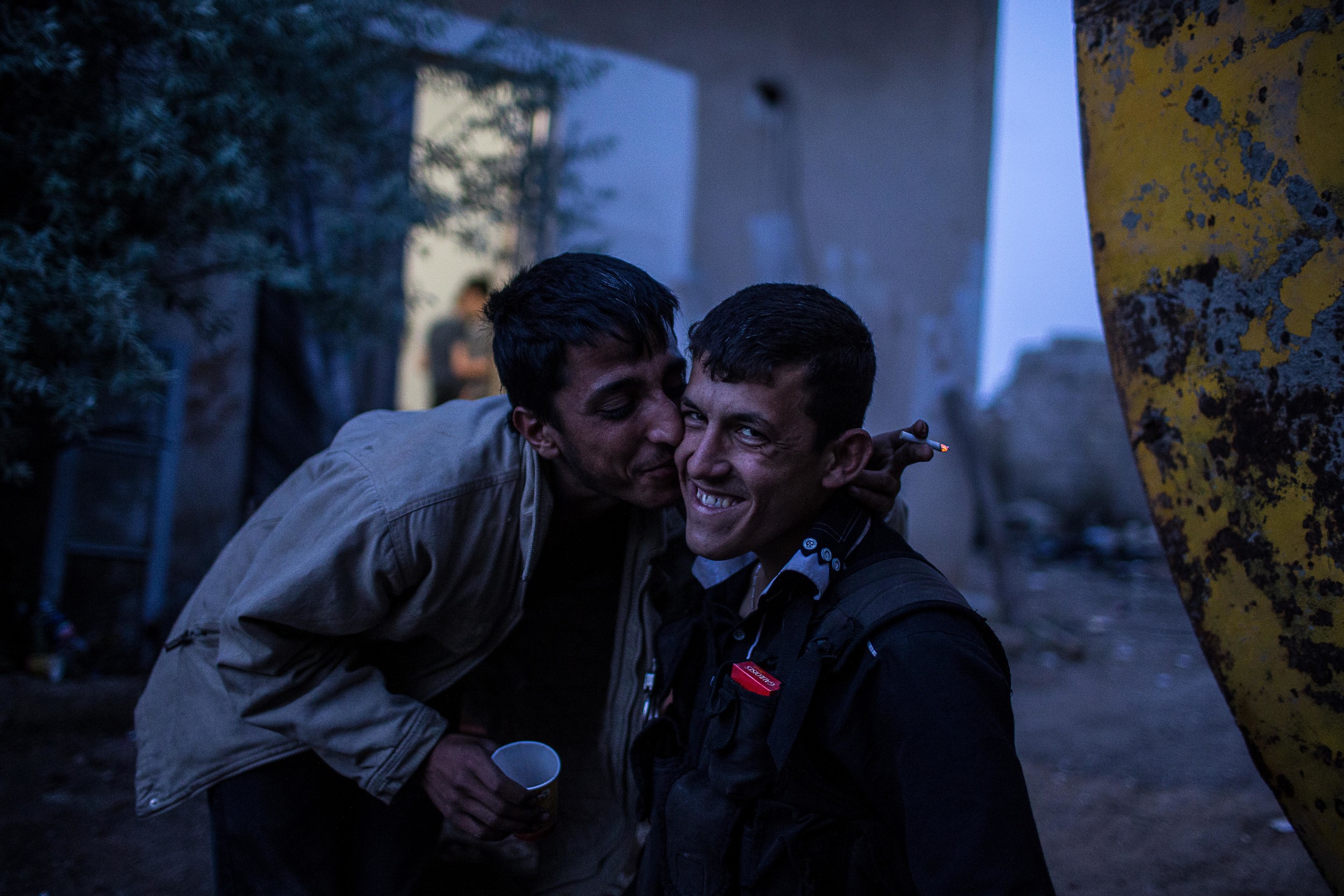






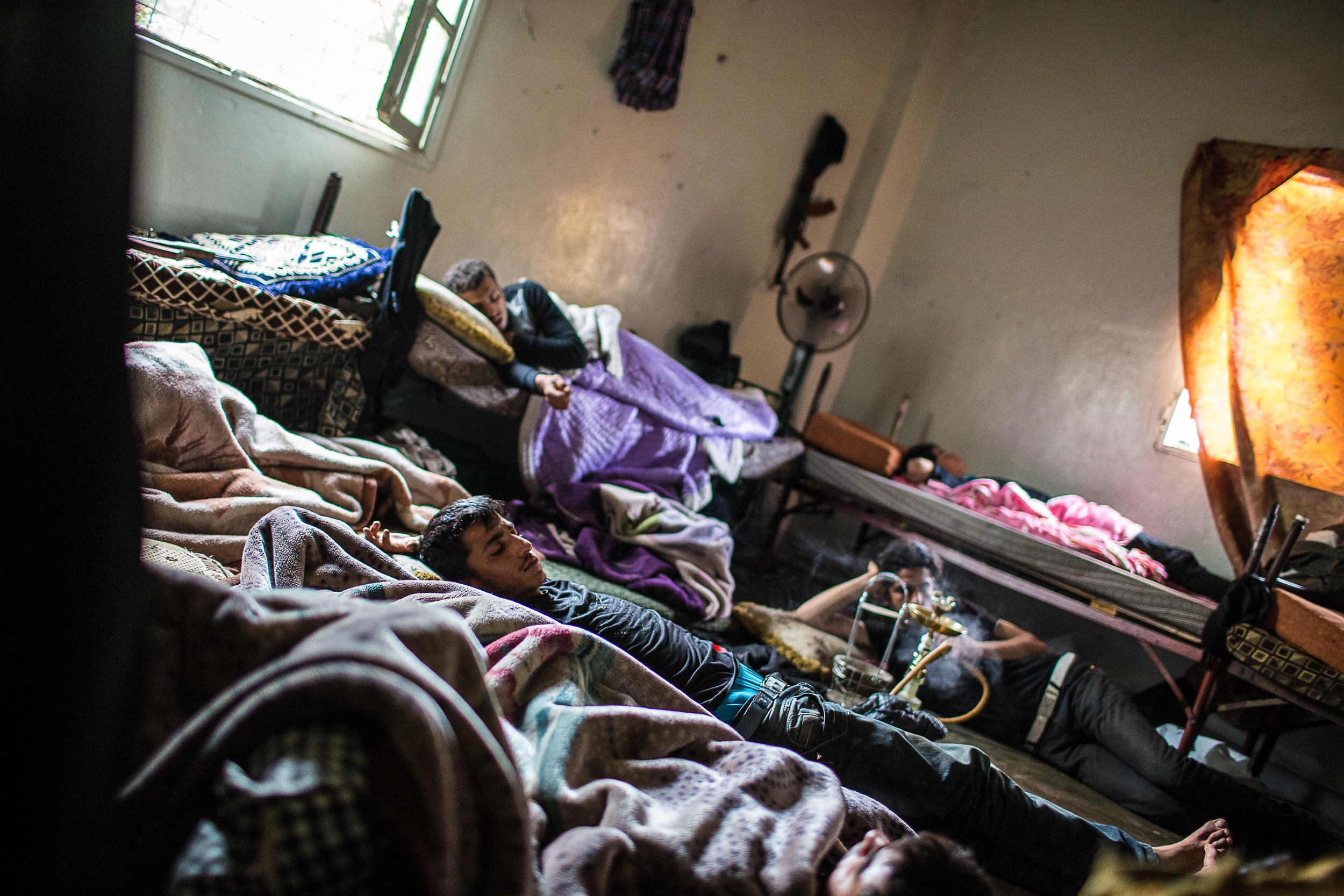
![A rebel named Hassan walks through the trees behind the base. "Their [regime soldiers'] bullets have my name inscribed on them. All of them," he says one afternoon, alluding to his desire to be a martyr.](https://images.squarespace-cdn.com/content/v1/539197a5e4b011988e2d90ab/1402404382125-TGIF77F6RJZPSKXB0ZHG/Knowles-Coursin_124.jpg)


